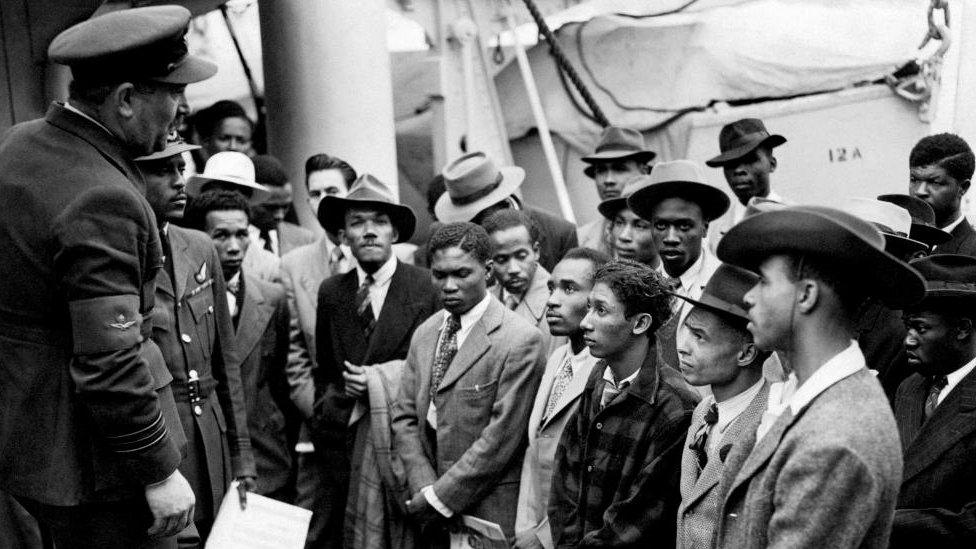Windrush arrivals made UK a better place - William
- Published
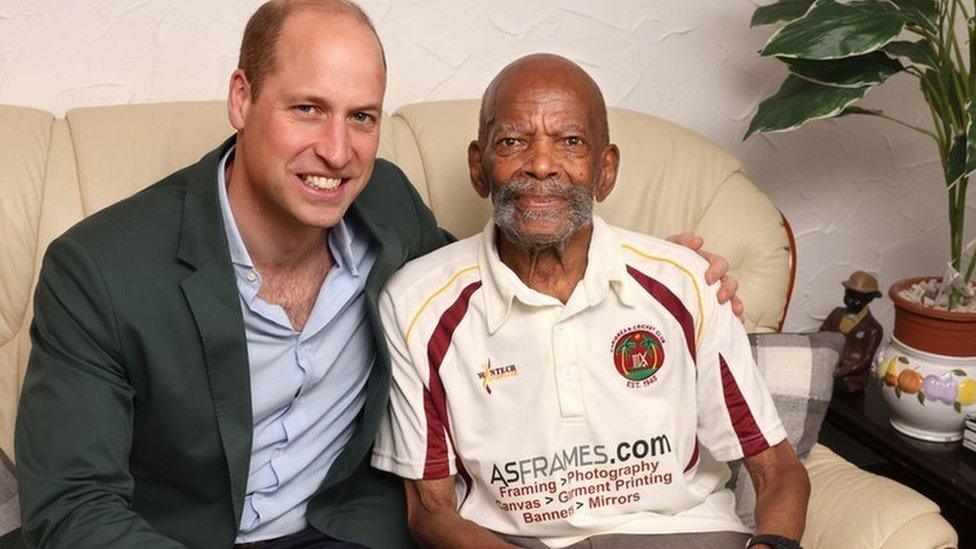
Prince William met Alford Dalrymple Gardner, one of the few living passengers to have travelled on the Windrush
The Windrush generation have made the UK "a better people today", the Prince of Wales has said on a day of celebrations marking 75 years since the historic crossing from the Caribbean.
Prince William said the voyagers and their descendants had helped rebuild the country and added to its culture.
The King was also at a Windsor Castle service, and a procession was held in south London.
Campaigners welcomed the commemorations but called them "bittersweet".
Over 1,000 people stepped off the HMT Empire Windrush at Tilbury Docks in Essex on 22 June, 1948, among the first of thousands encouraged to migrate and help fill labour shortages in the armed forces, industry and NHS.
In 2018, it emerged that many British citizens who arrived as migrants from the Caribbean between the late 1940s and 1970s were facing deportation and detention - despite having the right to live in the UK.
Paying tribute in a video posted on social media, Prince William said: "Today we celebrate the Windrush generation, their descendants and everything they have given to us all."
The prince said those voyagers had helped to rebuild the country and had added to its culture - "their contributions to Britain cannot be overstated".
He added: "We are a better people today because the children and the grandchildren of those who came in 1948 have stayed and become part of who we are in 2023. And for that we are forever grateful."
Prince William's tribute came after he met Royal Air Force veteran Alford Dalrymple Gardner, who is one of the few living passengers to have travelled on the Windrush.
Speaking to BBC Radio 4's Today programme, Jamaican-born Mr Gardner said quite a lot had happened in the past few months: "I've met the King and I've met the Queen, and I've met the Prince of Wales.
"There's a portrait of me to be hung at Buckingham Palace so in a couple of thousand years when I'm dead and gone, my great great great ones will see my name... nothing can beat that."
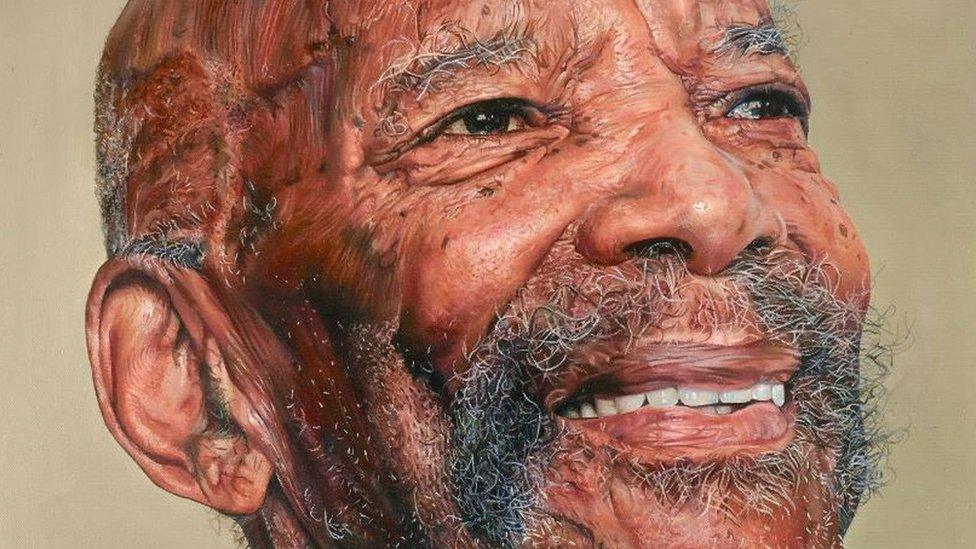
The portrait of Alford Gardner was painted by artist Chloe Cox after King Charles commissioned a series of paintings to mark the Windrush crossing
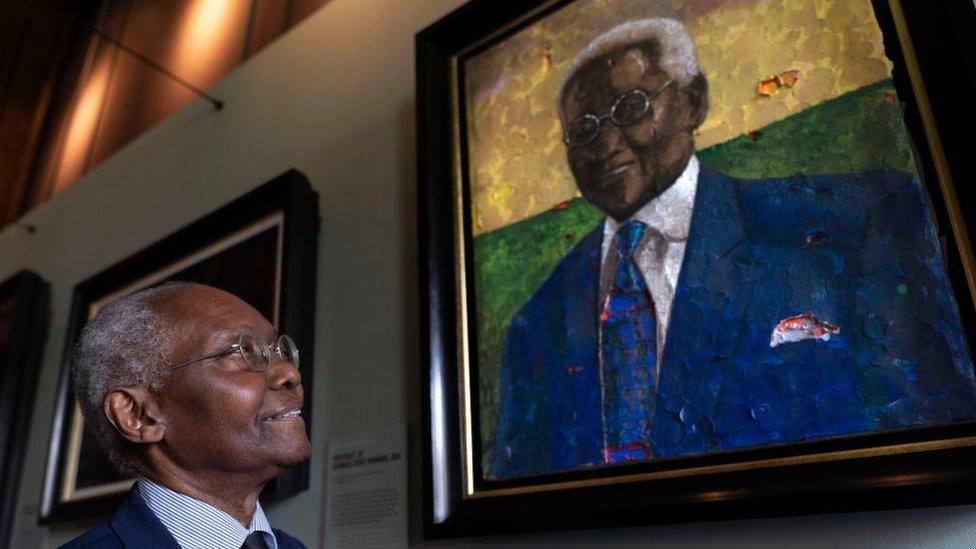
Professor Sir Geoff Palmer is among those to feature in the King's Windrush: Portraits of a Pioneering Generation collection
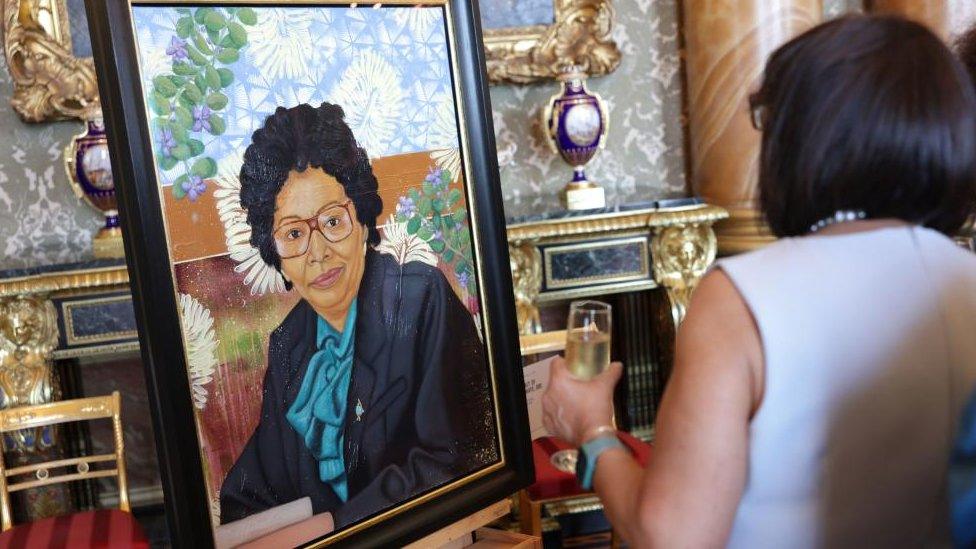
Guests were invited to view the specially commissioned portraits at Buckingham Palace last week
The portrait is one of ten paintings of members of the Windrush generation by black artists, commissioned by the King. The artwork is on public display for the first time at the Palace of Holyroodhouse in Edinburgh, and later in October at the National Portrait Gallery in London.
Writing in a book accompanying the artworks, the King said: "Though drawn from different parts of the world, they collectively enrich the fabric of our national life and the remarkable tapestry of the Commonwealth."
He said it was "crucially important that we should truly see and hear these pioneers... and those who followed over the decades to recognise and celebrate the immeasurable difference that they, their children and their grandchildren have made to this country".
On Thursday morning, the King was joined by young people and dignitaries at St George's Chapel at Windsor Castle for a service celebrating the Windrush generation.
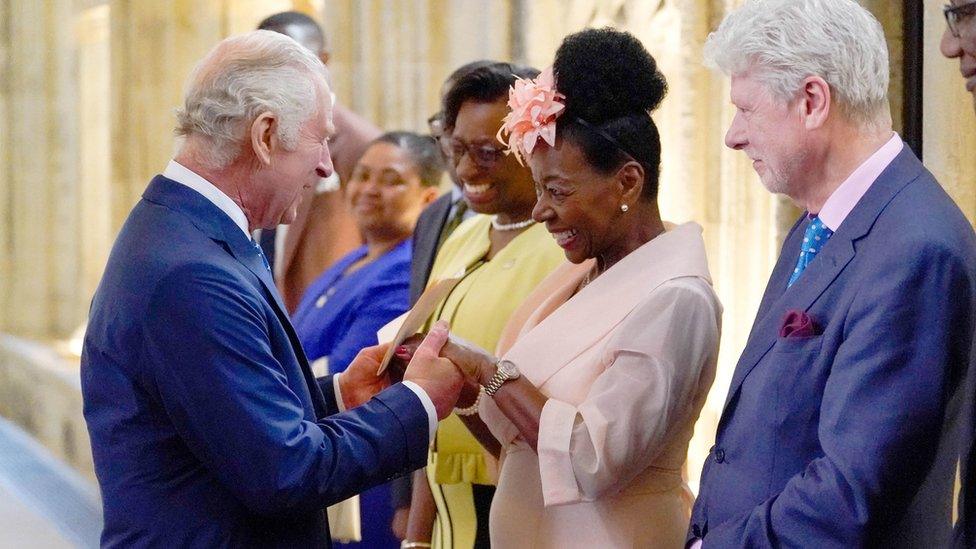
The King met a familiar face during the service - former broadcaster Baroness Benjamin carried his sceptre at the Coronation in May

Jermaine Jackman, the former winner of The Voice who was one of the campaigners who called for Windrush 75 to be a "major national moment", sang during the service
Throughout the day the Windrush flag was flown at the Houses of Parliament and public buildings across the country, including Bristol and Exeter.
In south London, there was a party atmosphere as people processed in carnival outfits from Herne Hill to Windrush Square, Brixton, where many of the Caribbean community settled.
In Essex, there was dancing as a Thames Clipper boat arrived at the Port of Tilbury with 100 NHS workers and 100 people with Windrush connections. A blue plaque commemorating the 75th anniversary of some of the first arrivals was also unveiled.
Meanwhile, a £1m fundraising effort is under way to recover the anchor from the HMT Empire Windrush and put it on public display. The ship sank off the coast of Algeria in 1954.
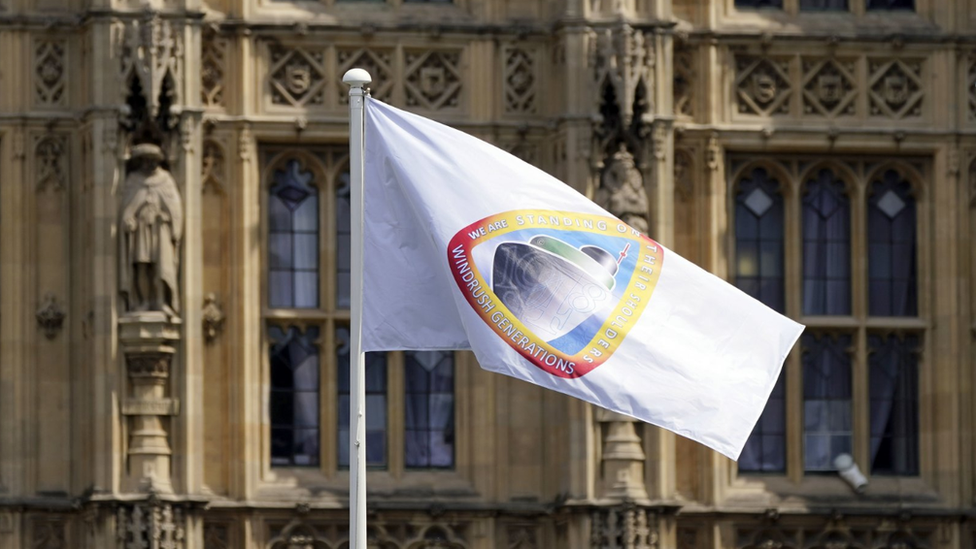
The Windrush flag was flown at Parliament, as well other public buildings across the country

Prince William met Alford Dalrymple Gardner, one of the few living passengers to have travelled on the Windrush
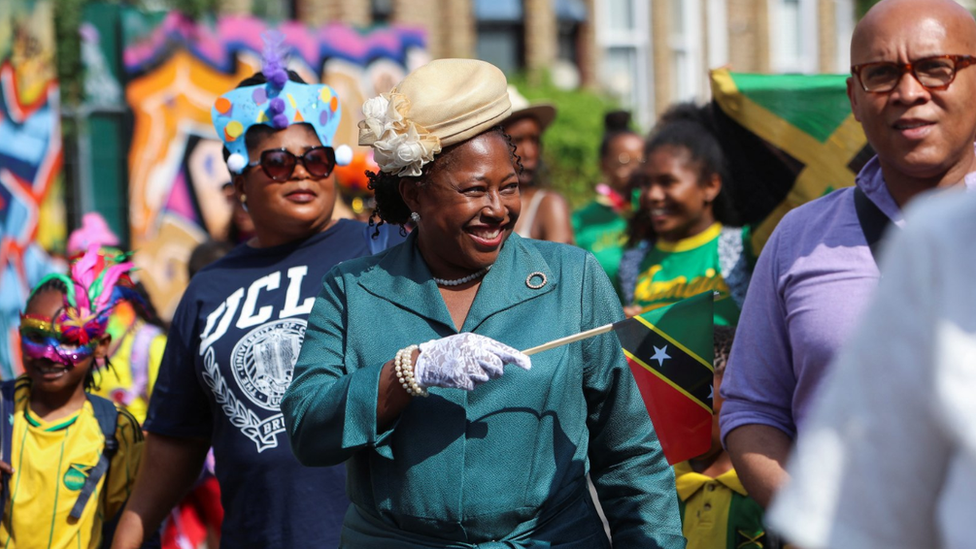
A woman dresses at the Brixton procession in a nod to the fashion of the female Windrush arrivals
In 2018, it came to light that some members of the Windrush generation and their descendants were facing deportation and being denied access to public services because their right to live here had not been properly recorded by the government decades before.
The then-home secretary, Amber Rudd, apologised after a scathing report published in 2020 found it had been "foreseeable and avoidable" and that victims were let down by "systemic operational failings".
As of last month, £75m in compensation had been offered to those impacted, with £62.7m of that paid out, analysis by the PA News agency showed.
But the Home Office has continued to face criticism over the handling of compensation applications.
Amelia Gentleman, a journalist for the Guardian who exposed the scandal, told Radio 4's Today programme: "The anniversary remains soured by the ongoing failings of the Home Office."
She added the 44-page form involved in claiming compensation was too complicated.
Patrick Vernon, convenor of the Windrush 75 network, said the events were a chance to "celebrate the diversity of modern Britain" and to "acknowledge the legacy of those first Windrush pioneers, the challenges they overcame and the contribution they made to Britain".
But he said it was a "bittersweet moment, tainted by the injustice of the Windrush scandal".
Home Secretary Suella Braverman has resisted calls for the programme to be moved out of Home Office control and the department has insisted it is "absolutely committed to righting the wrongs of the Windrush scandal".
Meanwhile, the BBC has uncovered evidence that hundreds of long-term sick and mentally ill people were sent back to the Caribbean after arriving in Britain.
Additional reporting by Andre Rhoden-Paul
Correction 31 July 2023: An earlier version of this story said that nearly 500 people were on board the Empire Windrush. After further research the figure has been amended to reflect that 1,027 were on board.
Related topics
- Published22 June 2023
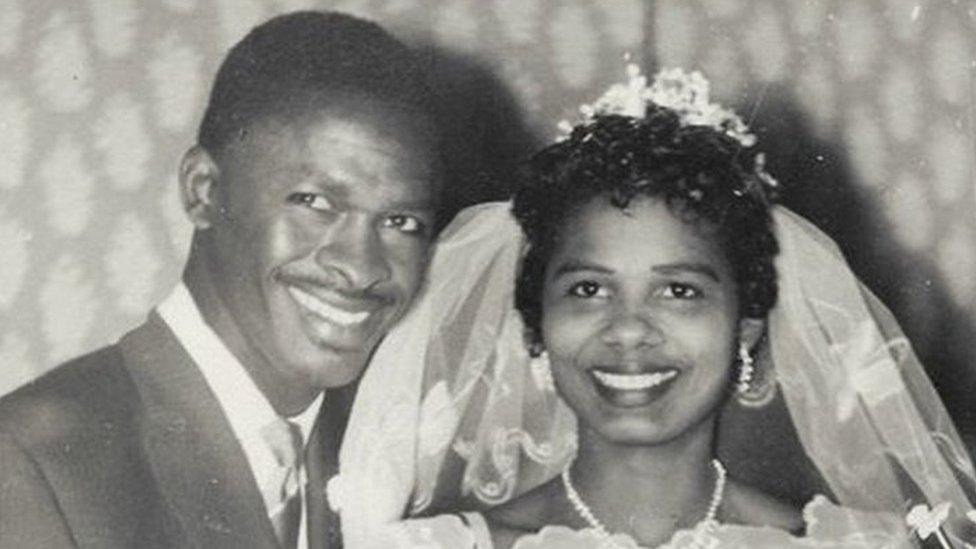
- Published22 June 2023

- Published22 June 2023

- Published21 June 2023
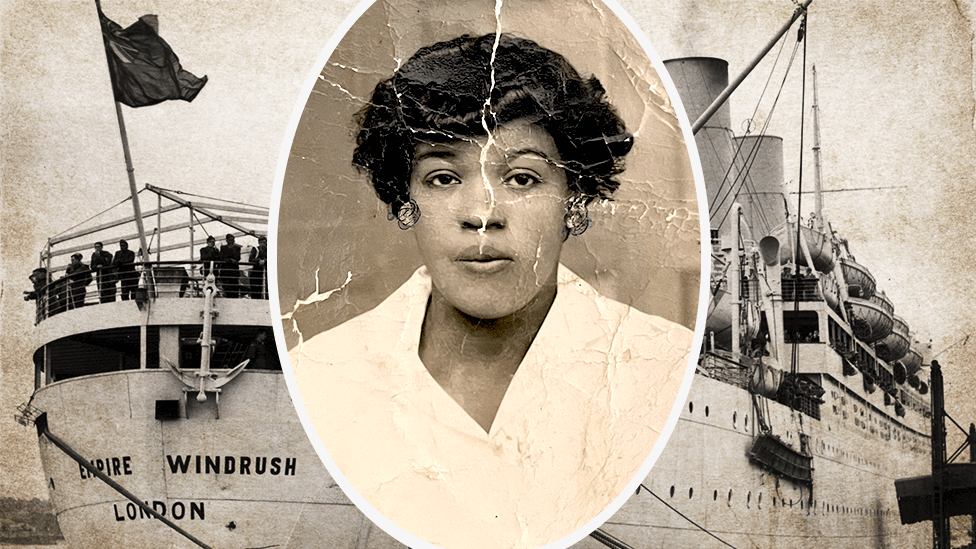
- Published22 June 2023
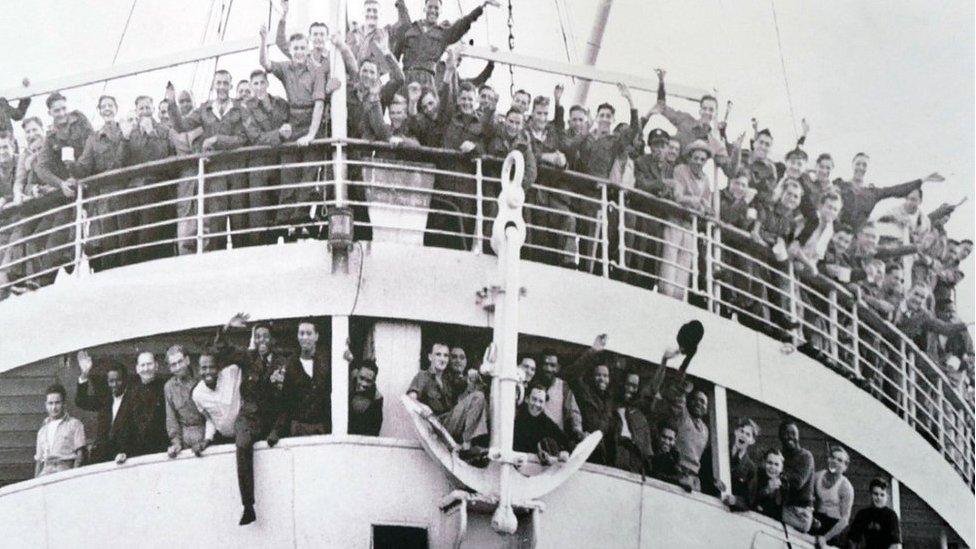
- Published21 June 2023
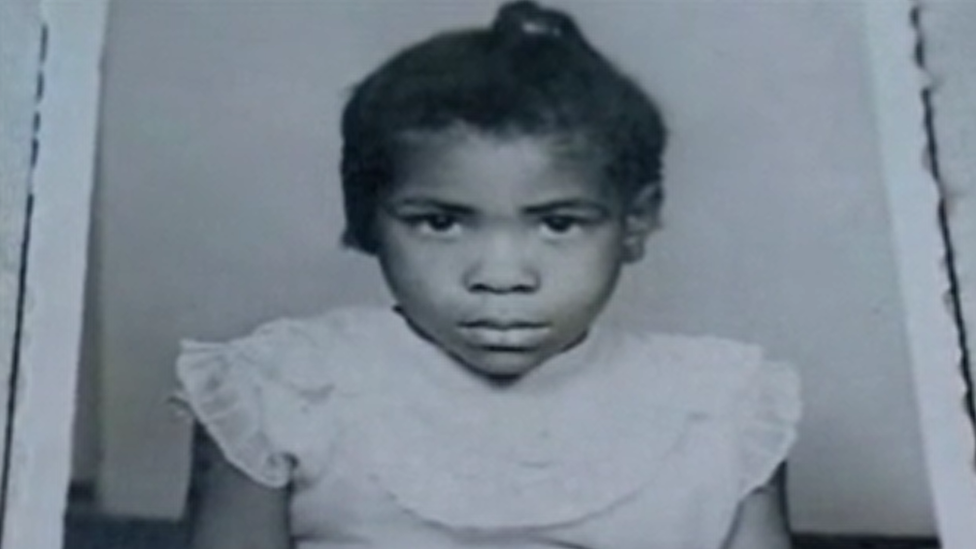
- Published19 June 2023
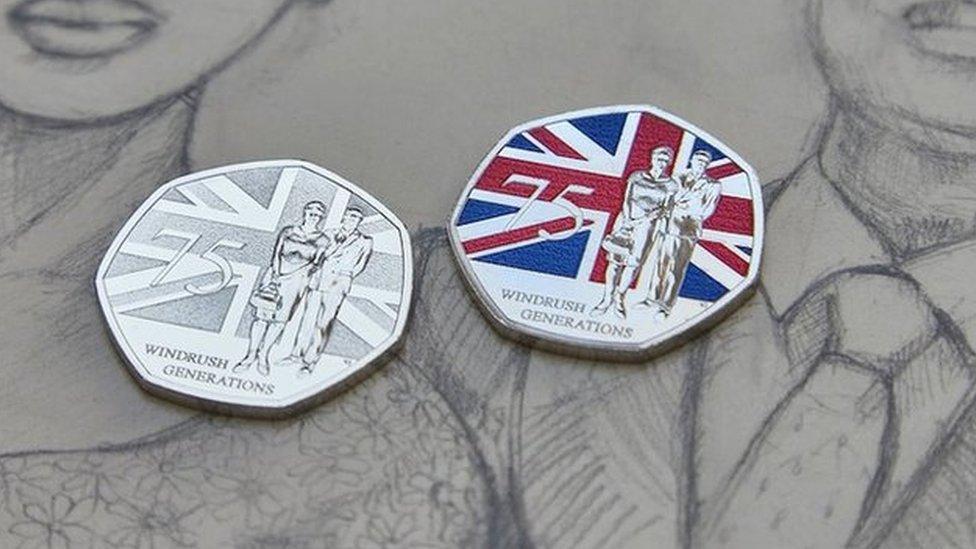
- Published26 January 2023
